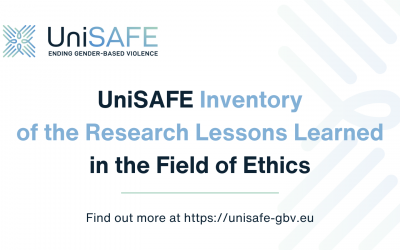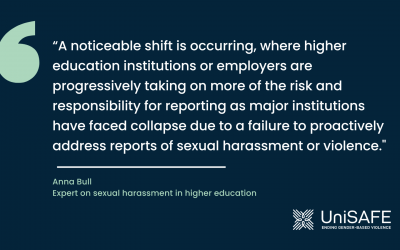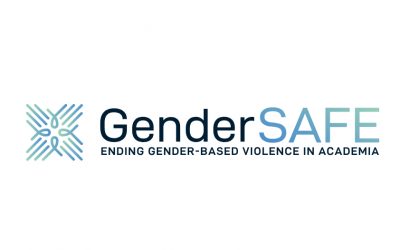The results of the UniSAFE survey on gender-based violence in academia are now available!
Between January and May 2022, UniSAFE coordinated the implementation of a survey among 46 participating universities and research organisations in 15 countries in Europe to collect measurable evidence on the prevalence of gender-based violence in academia and research. With over 42,000 responses from staff and students, the survey is the largest conducted so far in the European Research Area.
Read our main findings!
NEARLY 2 IN 3 RESPONDENTS HAVE EXPERIENCED GENDER-BASED VIOLENCE
The prevalence of gender-based violence is defined as the proportion of respondents who have experienced any form of gender-based violence asked about in the survey since they started at their institution. These different forms of gender-based violence consist of physical violence, psychological violence, economic violence, sexual violence, sexual harassment, and online violence. More information on how gender-based violence is defined in the project can be found here.
Overall, results show that 62% of the survey respondents have experienced at least one form of gender-based violence since they started working or studying at their institution.
Moreover, respondents who identify as LGBQ+ (68%), who reported a disability or chronic illness (72%), and those belonging to an ethnic minority group (69%) were more likely to have experienced at least one incident of gender-based violence, compared to those who do not identify with these characteristics.
ALMOST 1 IN 3 RESPONDENTS HAVE EXPERIENCED SEXUAL HARASSMENT
Psychological violence is reported as the most prevalent form of violence (57%). Moreover, almost one in three students and staff say they have experienced sexual harassment within their institution (31%), whereas 6% of respondents have experienced physical violence, and 3% sexual violence. One in ten respondents reported that their work or studies have been harmed by economic violence.
LOW REPORTING OF GENDER-BASED VIOLENCE INCIDENTS
Among respondents who had experienced gender-based violence, only 13% reported it. Almost half of the victims (47%) explained that they felt uncertain whether the behaviour was serious enough to be disclosed. Another frequent reason indicated by 31% of the victims is that at the time of the incident they did not identify the behaviour as an act of violence.
What next?
The anonymised data issued from the survey will be closely analysed alongside results from in-depth interviews of early-career researchers, a set of institutional case studies, as well as an assessment of policy and legal frameworks. This information feeds into the development of a multi- level analysis report, publicly available in December 2022.
UniSAFE’s findings will be translated into concrete policy recommendations, tailored tools and capacity-building activities and trainings to support stakeholders involved in tackling gender-based violence in higher education and research organisations. Join the UniSAFE Community to be part of the co-creation of these tools or sign up to our newsletter to stay informed of the project’s developments.
Do you have a question?
Browse through the FAQ related to the survey. If you haven’t found an answer to your question, please contact us here, we’ll be happy to answer!



